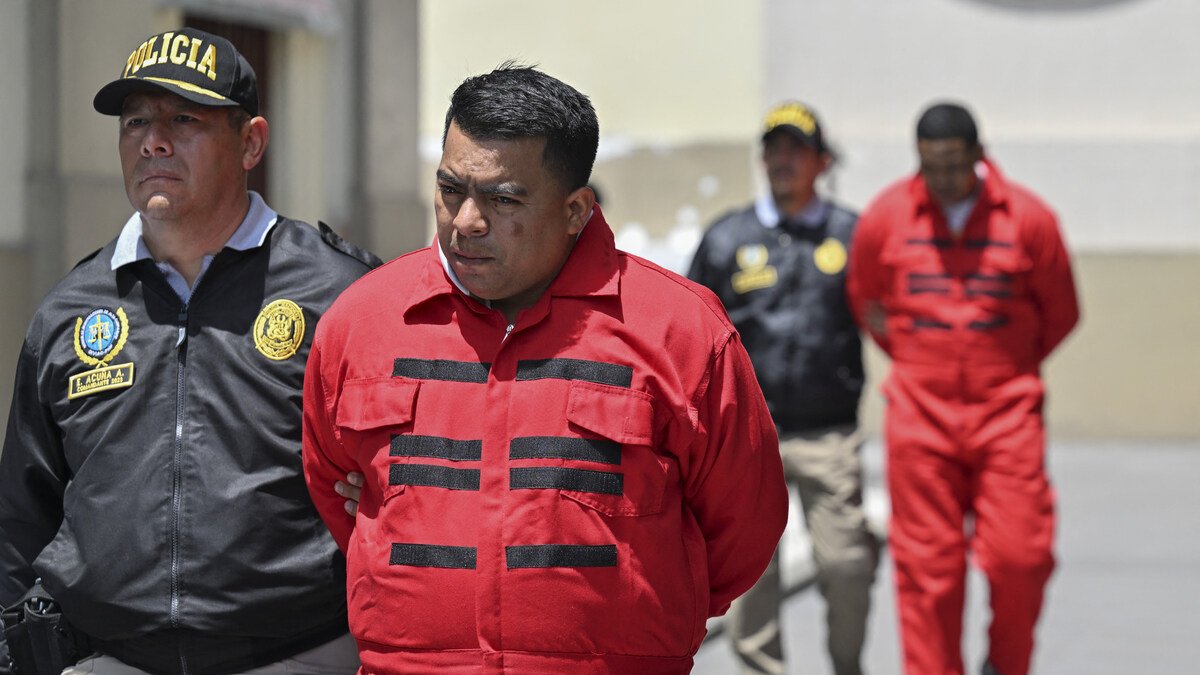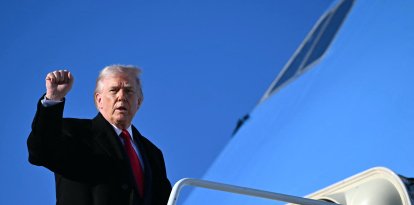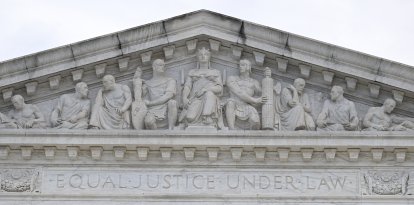Trump's plans to expel Tren de Aragua from the US
The president-elect has already tasked Tom Homan with finding solutions to force Maduro to return to accepting deportations of the nearly 1 million Venezuelans who arrived in the country under Biden, including hundreds of gang members.

Police officers lead Tren de Aragua prisoners.
Donald Trump has been clear that one of the most pernicious fruits of the Biden administration has been the border invasion the country has experienced over the past four years. This is not just because of the more than 10 million illegal immigrants who have been released into the U.S. during this time, but because of the criminals who have infiltrated among them. One of the president-elect's main priorities is cracking down on the dangerous Venezuelan gang Tren de Aragua, which has become strong in several states aided by the end of deportation flights to Venezuela.
The parole granted by Joe Biden to Venezuelans, among other nationalities, has caused almost 1 million citizens of this country (Customs and Border Protection has recorded 902,755 apprehensions since January 2021, which does not include gotaways) have entered the U.S. Since January, Venezuelan dictator Nicolas Maduro has refused to accept airplanes with citizens who fled his dictatorship and corruption.
Biden's legislation: A gift for Tren de Aragua
Members of Tren de Aragua have taken advantage of this situation to cross the border and establish themselves in at least 16 states, according to authorities. Thanks to Biden's legislation, not even these criminals can be detained by ICE for repatriation since they have a two-year shield and work permit.
In statements to The New York Post, former acting ICE chief during Trump's first term, Ron Vitiello, assured that the dangerous gang did not begin operating in the U.S. until the Biden administration, when ICE and Border Patrol agents along with local police began to sound alarms by identifying tattoos of illegal immigrants committing crimes.
"There hasn’t been an arrest of a Tren de Aragua member in reported CBP data before 2021. Think of that, that’s incredible. I was in the government for 34 years. I never heard of Tren de Aragua until after I left in 2021 when it became a thing in New York."
Tom Homan optimistic about changing Maduro's mind
Maduro's refusal is one of the main stumbling blocks for Trump to make good on his promise of mass deportations, which is why he has already ordered Tom Homan to study the situation to take appropriate action starting in January. The future border czar has already pointed out that the incoming administration "has a lot of leverage to force Venezuela to start accepting deportations." Among them is the threat of imposing even tougher sanctions or withholding aid, which amounted to $209 million during 2024 alone.
Homan, moreover, recalled Trump's success on this issue in his previous term with criminal gang members from other countries: "He got El Salvador to take back MS-13, he got Mexico to agree to the Remain in Mexico program. So I got faith in President Trump to work with the president of Venezuela."
Economic pressure will be key
Also Wes Tabor, head of the Drug Enforcement Agency's Caracas office in 2012, pointed to economic pressure, with an "entrepreneurial approach" to restart deportations to the country: "They won’t have a choice with Trump because if he extends his hand and tries to do something with them reasonably … And if he [Maduro] puts his little finger up at Trump. Trump is going to… do everything he can to crush them economically."
Also on the table is forcing migrants to return, even without Maduro's approval, something that has already been done on occasion with Haitians intercepted by the Coast Guard. The option of sending them to other countries in the Caribbean including Colombia and then on Venezuela has also not been ruled out. Another option being evaluated is some of these countries taking in deportees in exchange for aid from the U.S.

























